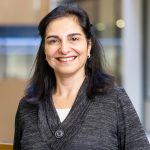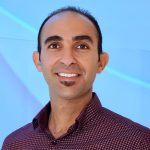We know that a person’s genetics can influence their risk of developing multiple sclerosis (MS). However, we do not know exactly which genes, nor how they cause MS to begin or worsen. This research aims to identify and study genes potentially associated with MS.
Dr Nicholas Blackburn will study families where multiple members have MS. He will look for changes in genes that may lead to MS by comparing the genes of family members with MS to those who do not have MS. The changes may be rare in the general population but can be repeated in a single family because of shared genetics. After finding these changes, Dr Blackburn will identify how they contribute to MS development.
Dr Blackburn will study the changes that occur in MS families using laboratory-based cell models. This will help determine how these rare changes make the cells of people with MS act differently. These cell models will be made directly from cells donated by the family members with MS and, for comparison, their unaffected relatives, who do not have the genetic changes.
In addition, Dr Blackburn will look for rare genetic changes in thousands of unrelated people with MS. In these people, he will study the same genes found in the families, to see if other people with MS have the same or similar changes. He will also observe changes that are known to cause diseases that are like MS, to identify if some of the same genes might cause symptoms in people diagnosed with MS.
To date, Dr Blackburn has completed DNA sequencing of 20 families, comparing the genetic profiles of family members with MS to those without, to identify genes that may contribute to the development of MS. His analysis suggests that changes to genes, in a particular biological pathway, may be occurring more often than is expected by chance in these families.
Dr Blackburn has shown in three families that the DNA changes that are known to increase the risk of MS. These changes, which are common in the general population but are slightly more common in people with MS, do not explain why these families have multiple people affected by MS. This supports his approach to study rare DNA changes.
With his team and collaborators, Dr Blackburn has continued to study laboratory-based models of the rare DNA changes found in two families to date. Their work continues to give them an understanding of what the DNA changes are doing and how they might be involved in MS. They have also selected DNA changes from additional families that they want to study further in new experiments.
Chen M, Motyer A, Taylor B, McComish BJ, Burdon KP, Charlesworth JC, Blackburn NB (2024) Multiple sclerosis polygenic risk is not enriched in three multi-case families in comparison to population-based cases. Human Mutation 2024: 1-8.
Updated 31 March 2025
$225,000
2023
3 years
Current project




